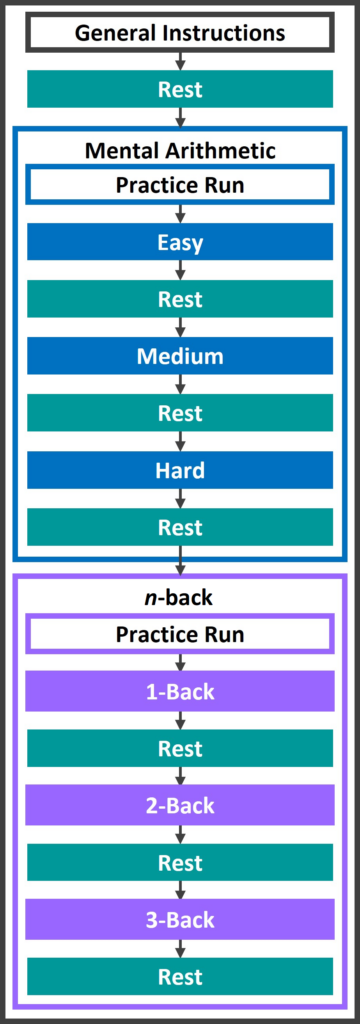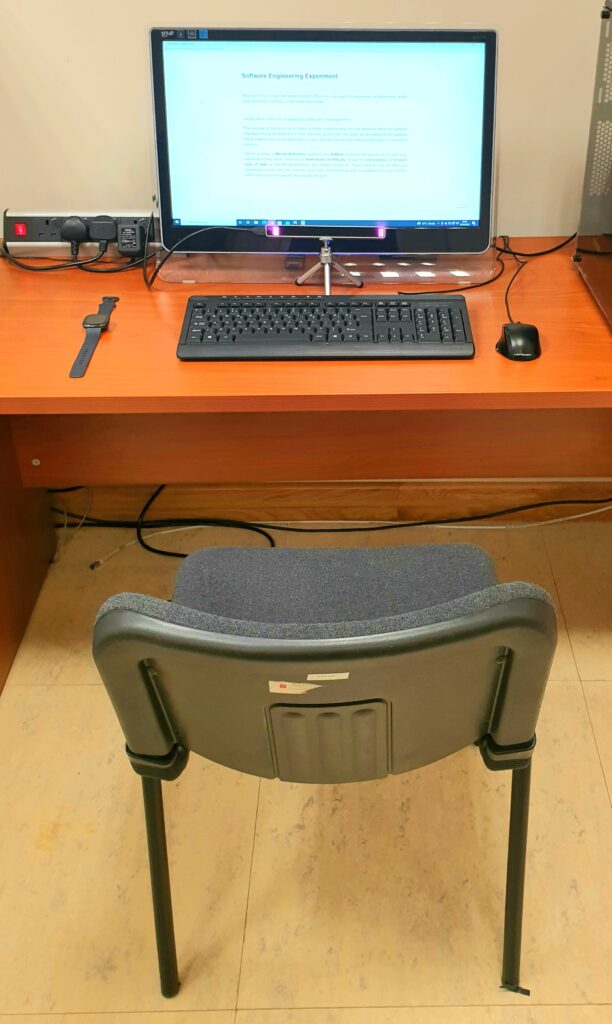The objective of this research was to investigate the pressures encountered by software engineers while carrying out cognitively intensive work. For this reason, a controlled lab-based experiment was designed to study how typical stressors affect participants while carrying out predetermined, cognitively demanding tasks.
Tasks covered aspects such as rational thinking and the use of working memory in a controlled environment that includes stressors (e.g., distractions). During this study, both physiological and subjective workload measures were recorded. The insights obtained from this research would help demonstrate the validity of data obtained through a smartwatch, as well as an eye-tracker, to accurately pinpoint periods of stress.
The participants selected for this investigation were junior developers. The interface for the experiment was developed using the lab.js platform through which a series of mental arithmetic questions and n- back questions were designed, reflecting mental workload typically experienced while carrying out software engineering tasks (e.g., debugging or code comprehension). Variables such as time constraints and task difficulty were adopted across tasks. Various metrics were recorded during the study, including task performance and task duration. Moreover, subjective scales were used throughout the experiment to obtain insights on the perceived stress levels and cognitive workload experienced by participants. Heart-rate readings, along with pupil dilation, were also collected using a Fitbit Sense smartwatch and an Eye Tribe eye-tracker, respectively.
The obtained metrics helped determine whether correlations between the overall task difficulty and the physiological responses did indeed exist, and to which extent. The subjective measures used throughout would in turn offer a deeper meaning when drawing conclusions from the participants’ data


Course: B.Sc. IT (Hons.) Software Development
Supervisor: Dr Chris Porter
Co-Supervisor: Dr Mark Micallef
